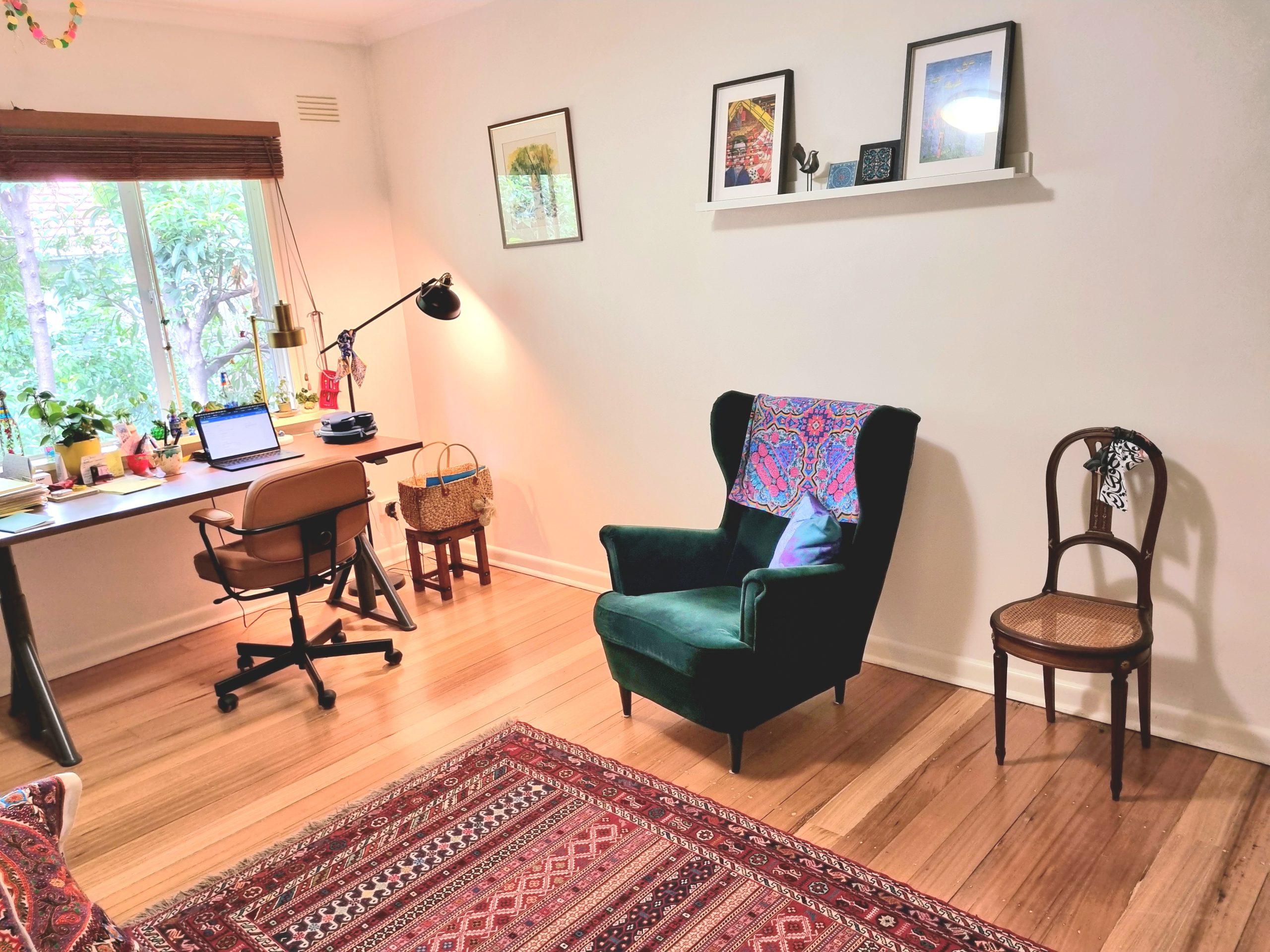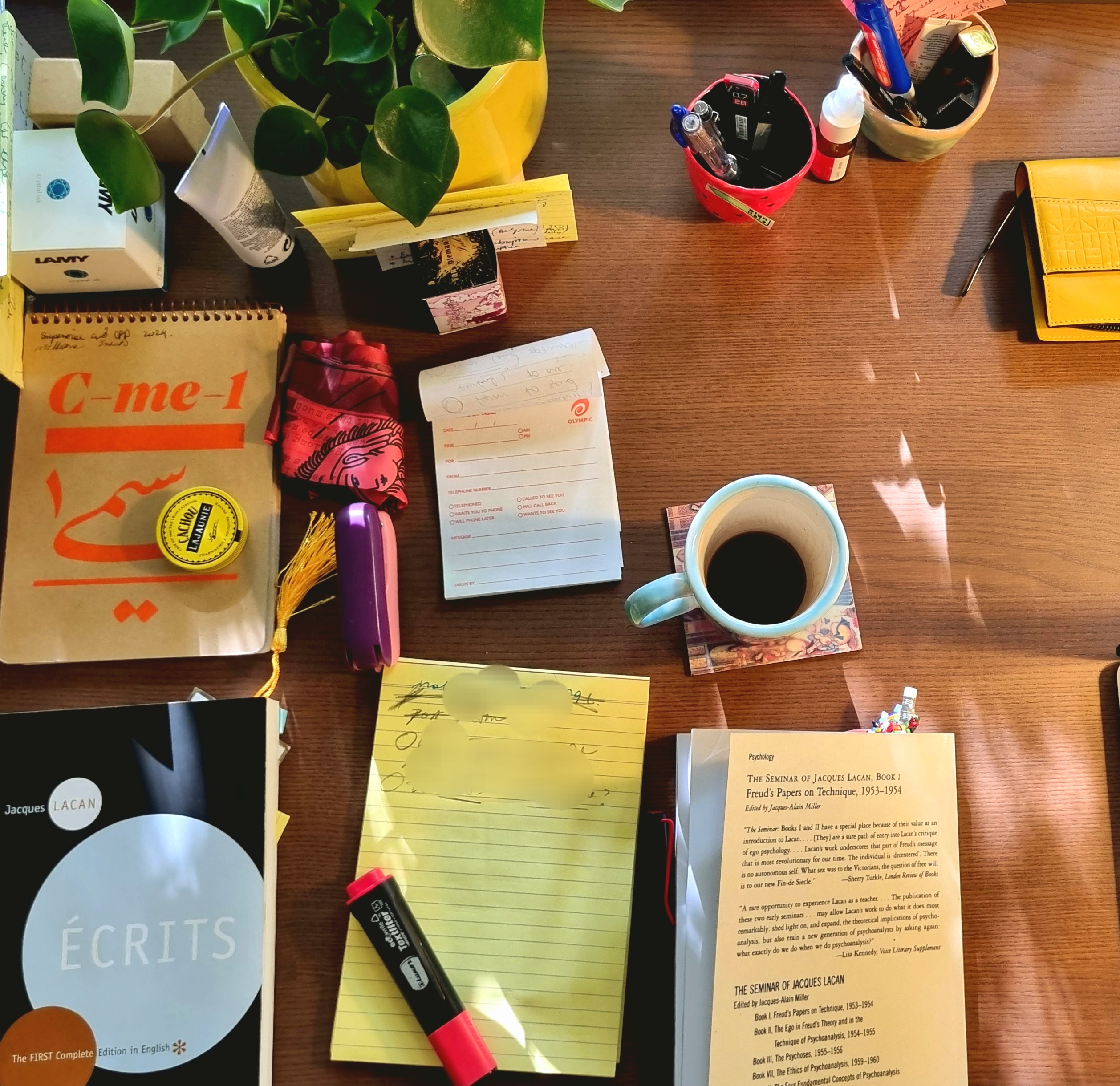Professional & Clinical Supervision and Training
Supervision sessions provide support for case formulation, clinical skill-building, reflective practice, and self-awareness of what is unconsciously brought into treatment with clients.
Supervision goes beyond guiding the supervisee - it involves confronting unconscious material in clinical work

Find a Clinical Psychology Supervisor: Why Seek Professional Supervision?
Find a Psychology Supervisor: for Psychologists & Allied Health Professionals
Find a psychology supervisor: Bita Riazati provides a private and confidential space for reflection, intended for provisional psychologists seeking a board approved psychology supervisor, registered psychologists, social workers, counsellors, doctors and psychiatric nurses working in mental health and allied health professionals needing support, debrief, and advanced professional development and training in the complexities of clinical work and the mental health field in Melbourne. As a Psychology Board of Australia (PsyBA) approved supervisor 5+1 Internship program, our sessions are grounded in the PsyBA’s competency framework, yet attuned to the unique journey of each professional.
These psychology supervision sessions in Melbourne offer support across a range of professional areas, from nuanced case formulation to the cultivation of clinical skills essential to one’s practice. Bita’s approach also creates a space for reflective practice and awareness of what you unconsciously bring to the patient sessions, working with you to gain insight and become aware of your clinical stance with your clients.
What’s unique about Bita’s supervision approach?
Bita Riazati is also a psychoanalyst who has spent many years in her own supervision and continues to do so. According to the renowned psychiatrist and psychoanalyst Jacques Lacan, supervision helps orient the therapist’s position and allows them to discern how their own unconscious material may interfere with treatment. For example, it helps clinicians recognize when they are intervening too much or too little. Thus, supervision becomes a space where one can examine their own projections, resistances, and blind spots.
A Lacanian psychoanalysis frame involves critical reflection on the ethics of treatment and explores how the clinician is both involved in and distanced from the treatment of the patient’s symptoms. Bita creates a space for you to become aware of your unconscious desire and subjectivity with each case, while also opening up the possibility to reflect on your questions.
Hours
Mon - Thurs (Hawthorn)
11 AM to 9.30 PM
Fri & Sat
(Belgrave / online)
Location
Format
- Individual – Group
- Professional – PsyBA
- Single Session
- Seminar
Fees
Fees apply. Supervision services are tax deductible. FAQs
Book Appointment
Appointments are offered based on current openings, respecting the unique timing and readiness for each individual's work. You're welcome to contact Bita, and together, we can work out what may be troubling you.
Psychology Supervisor for Provisional Psychologists
Bita is an ahpra supervisor / board-approved psychology supervisor for provisional psychologist trainees in the supervised practice internship program. As an ahpra supervisor of the Psychology Board of Australia (PsyBA), our sessions are grounded in the PsyBA's competency framework, yet attuned to the unique journey of each provisional psychologist. For provisional psychologists working towards board registration in Australia, supervision is a key part of the journey. As a PsyBA-approved supervisor, I'm here to help you set clear goals and develop core competencies like ethical practice, psychological assessment, and clinical skills. In our regular sessions, we'll go over casework, address any ethical concerns, and work on refining your techniques, making sure everything aligns with AHPRA standards.
I’ll also support you as you prepare for the National Psychology Exam, offering insights into essential topics to help you succeed. Plus, every six months, I’ll submit a progress report to AHPRA to keep everything on track. This supervision process is not just about meeting requirements? it’s about building a solid foundation in professional, ethical, and effective practice as you move forward in your career. To request an appointment, Please Reach out to Bita Riazati directly at 0433781919 or online.

About Psychoanalytic Training and Supervision: My Approach
- Benefits of Supervision
- Who Needs Supervision?
- How Does Supervision Work?
- Supervision Session Structure
Psychology Supervisor Melbourne: Benefits of Supervision
In supervision, the focus is on truly listening to what's being said. Lacan saw this as a way for analysts to encounter the limits of their own understanding, helping them avoid unintentionally imposing their own views onto the patient's speech. In this space, the clinician learns to hear the unconscious material (i.e, signifiers) and symbolism such as in dreams and other formations of the unconscious, which might otherwise slip by. This careful listening safeguards the patient's singularity, allowing the symbolic and unconscious to unfold in their speech, rather than being subsumed by the analyst's interpretations.Who I Work With in Supervision
- Therapists with an interest in psychoanalysis theory wanting to work with clinical concepts such as transference, subjectivity, and desire.
- Clinicians interested in examining their own subjectivity wanting to reflect on how their own subjectivity and unconscious biases influence their clinical work.
- Practitioners working with complex cases with severe mental health issues, such as psychosis, personality issues, or challenging transference dynamics.
- Individuals in training and wishing to undertake psychoanalysis training and begin supervision of a case.

